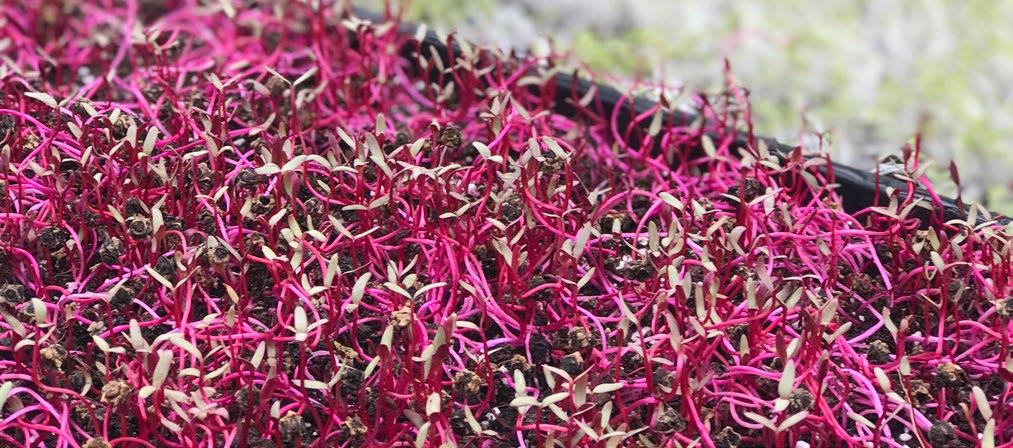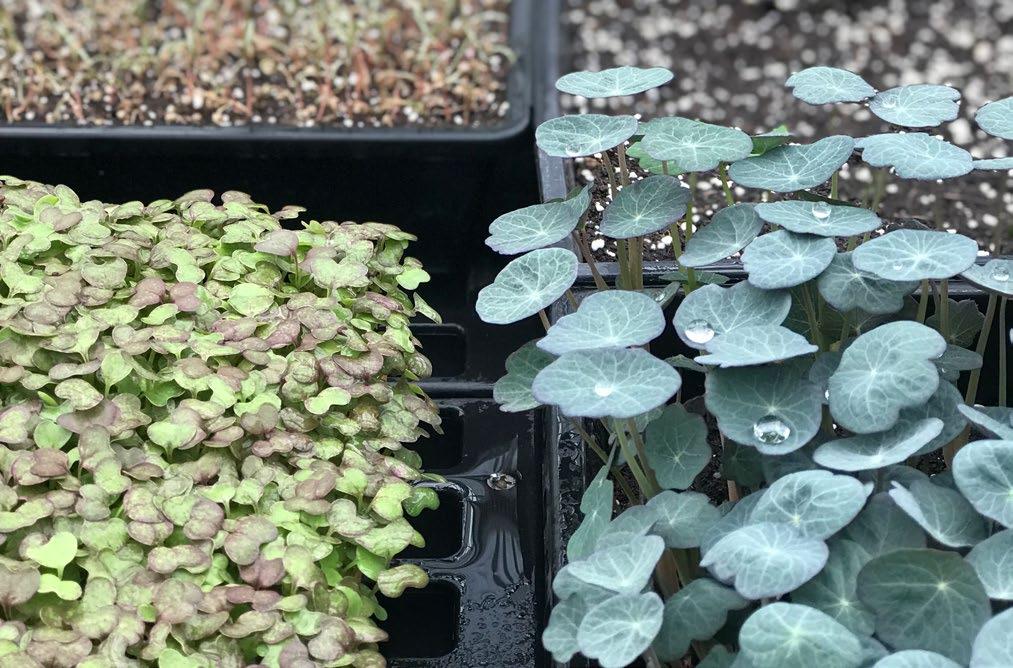
7 minute read
Facility Features
The Javits Center’s six-block campus incorporates many sustainable features designed to improve energy efficiency, conserve water and create a healthy built environment for visitors, employees and the surrounding ecosystem. The facility aims to model what is possible for venues and green buildings across New York State.
Energy Conservation Measures
The following energy conservation measures are implemented for each event: • 50% overhead lighting during move-in and set-up period • Overhead lighting and floor power not turned on until one hour prior to the event opening • Half lighting reinstated after the closing hour of the event • Floor power turned off 30 minutes after the closing hour of each event day • Heating and cooling conservation during move-in and move-out periods • Energy efficient HVAC units with HEPA filtration systems • High-speed automatic roll up doors between loading docks and expo halls to modulate temperature fluctuations in the building • Escalators on only during event days and turned off 30 minutes after the event closes An Unconventional Oasis
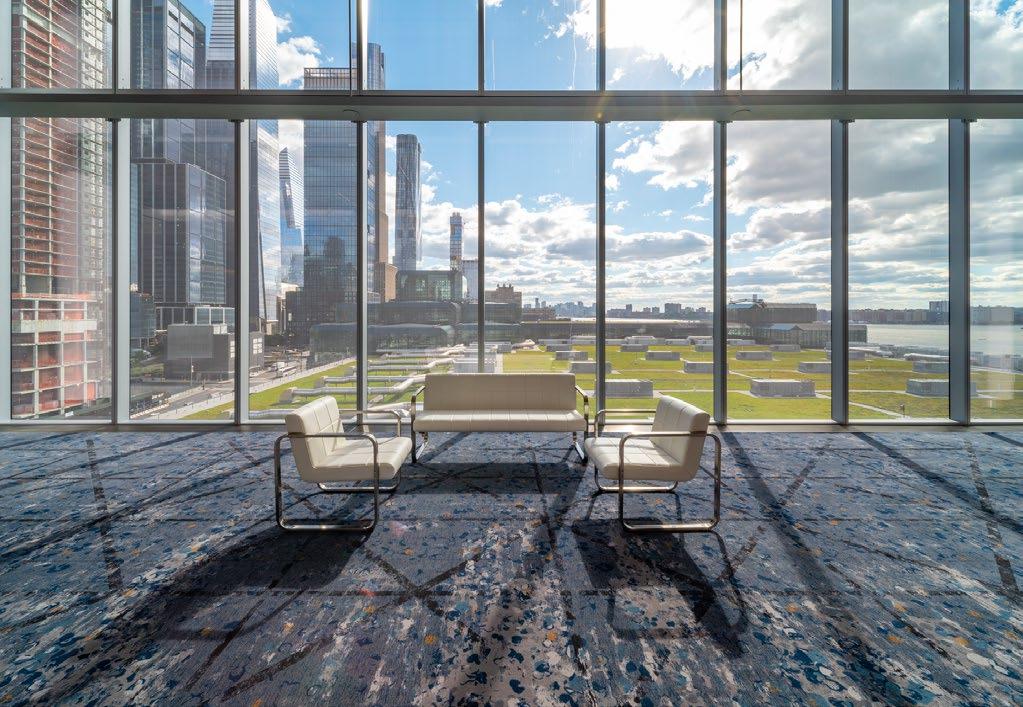
Since 2014, the 6.75-acre green roof, combined with energy efficient HVAC units and an improved thermal envelope, has helped the facility reduce its energy consumption by 26%. The green roof is a wildlife sanctuary that is habitat for 35 species of birds, five species of bats and thousands of insects, which are surveyed by New York City Audubon. The green roof helps to reduce the temperature of the building and the surrounding area, mitigating urban heat island effect. A Drexel University study showed that the roof retains an average of 81% of stormwater runoff, which equates to about 7 million gallons annually. Bird-friendly glass is installed throughout the facility. The fritted glass allows birds to recognize the glass as an obstacle rather than seeing a reflection, reducing the number of bird collisions and deaths by at least 90%.

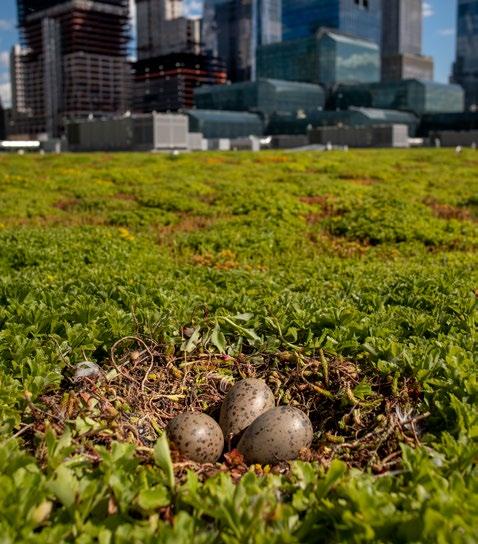
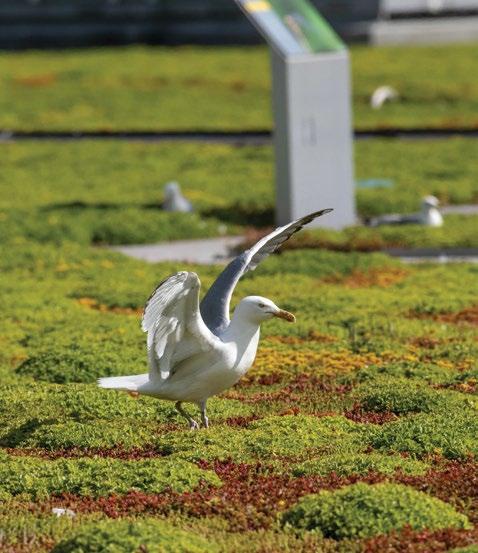

North Javits
This 1.2 million square foot expansion includes several concepts designed to push the boundaries of sustainability and create a path for future initiatives. Led by the New York Convention Center Development Corporation, contractors Lendlease and Turner and architectural firm, tvsdesign, the historic expansion project completed in May 2021 with LEED Gold certification from the U.S. Green Building Council. As part of the project, 75% or more of all construction waste was diverted from landfills for reuse, and all construction materials were chosen with sustainable characteristics including high recycled content, locally sourced (within 500 miles) and sustainably harvested wood.
Among the sustainable highlights of the expansion are: • The Farm. A one-acre rooftop farm, including a 3,500 square foot all season greenhouse, that is expected to produce up to 40,000 pounds of produce a year; these crops will be directed to the convention center’s kitchens where the produce will be incorporated into customer meals served throughout the year; • The Terrace. In addition to the farm, this rooftop event space also features a pollinator meadow, a shade garden, a food forest and several ornamental planters with a focus on pollinator friendly and native plants. • Water Conservation. Two underground cisterns capture and treat rainwater to be used for irrigation on the roof, reducing the need for potable water for irrigation by at least 50%. Stormwater design reduces runoff by 25% and removes 80% of total suspended solids from water. Low-flow fixtures reduce potable water use by at least 35%; • Indoor Environmental Quality. The HVAC system uses CO2 sensors in all common spaces to adjust ventilation rates based on occupancy. All multioccupancy spaces that are regularly occupied have shared lighting controls that occupants can adjust, and at least 90% of individual regularly occupied spaces have lighting controls. Materials and finishes selected are low in volatile organic compounds for healthy indoor air; • Energy Efficiency. The implementation of highperformance glazing systems, demand control ventilation, high efficiency DX units, air-side economizer, reduced lighting power densities and low flow fixtures has helped to reduce the energy use from a baseline of 111 kBtu/ft2/ yr to 95 kBtu/ft2/ yr, resulting in an energy cost savings of 12%. Interior lighting complies with the light trespass requirements to reduce nighttime light pollution and spill-over effects. Exterior lights meet backlight, uplight and glare requirements. Roof and site hardscapes have light-colored materials that comply with the Solar
Reflectance Index to reduce urban heat-island effect; and • A Better Neighbor. A four-level truck marshalling facility can house 200 trucks at any one time, effectively relocating event trucks off of neighborhood streets to improve congestion and air quality.
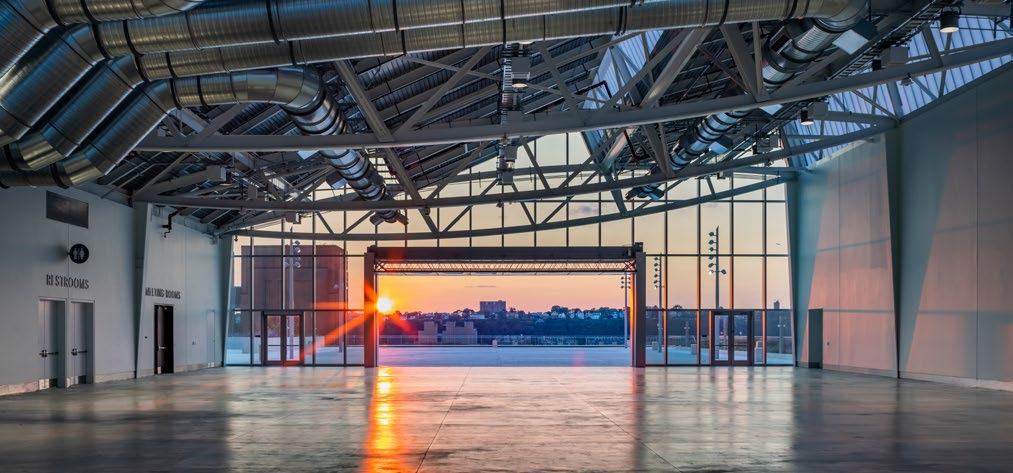
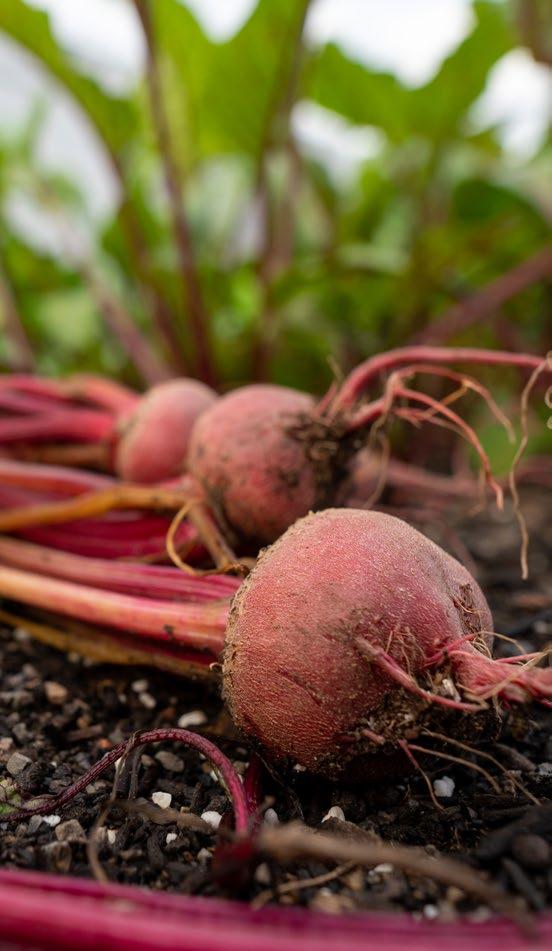

Food and Beverage
CULTIVATED is our catering provider with a focus on sustainable practices, New York-based experiences and world-class hospitality. CULTIVATED already prioritizes sustainability through back-of-house practices such as total food utilization, composting in all kitchens and food rescue. Beyond standard recycling practices of all paper, plastic, glass and metal, CULTIVATED also participates in a cloth towel-reuse program to avoid paper towel waste and a grease recycling program that converts spent fryer oil into biodiesel.
Since Fall 2021, CULTIVATED has helped to provide customers with unique roof-to-table experiences using produce grown at The Farm. The Farm is complimented by two Farmshelf units located in the food court, which grow edible flowers, herbs and leafy greens using hydroponic farming technology.
CULTIVATED has delivered world-class hospitality that is welcoming and inclusive while focused on sustainability. Here are some of the recent highlights: • TOTAL FOOD UTILIZATION à Total Food Utilization refers to using the whole ingredient and minimizing food waste from food preparation. Order history is carefully tracked to maximize purchasing decisions, which also reduces food waste in the long run. In the event where there is excess produce, or even with ugly produce, Cultivated chefs employ these foods in picklings, purees, soups and baked goods. • SKIP THE STRAW à Strawless lids allow consumers to sip their drinks without a straw. • DONATIONS AND FOOD RESCUE à Perishable produce, leftover food, bulk items, and excess prepped food are rescued and donated to local community partners. Organizations such as Rethink Food, City Harvest and New York Common Pantry help to facilitate the distribution of such foods to those in need. Food rescue is identified according to proper health and safety standards.
• WATER COOLERS à Offices and team meals employ water coolers to encourage the use of reusable water bottles. • WASTE MANAGEMENT à All kitchens sort waste into various streams to optimize waste diversion. Streams include compost, plastic, metal, glass, cardboard/ paper and landfill. • GREASE RECYCLING à The grease recycling program filters fryer oil to maximize usage and streamlines the changeover of spent oil with new oil. The process includes two types of portable machines that help with filtration, collection, and transportation of grease between kitchens and the loading dock. The vendor hauls spent grease in the loading dock machine to be recycled into biodiesel. The smart system tracks volumes and automatically records data through a built-in cellular portal.
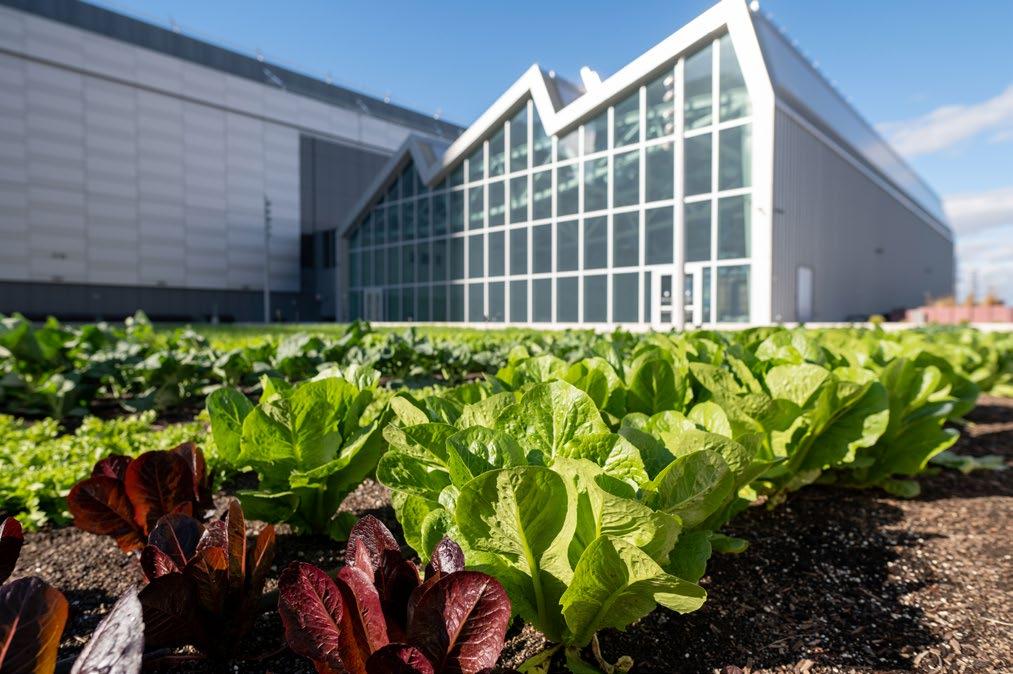
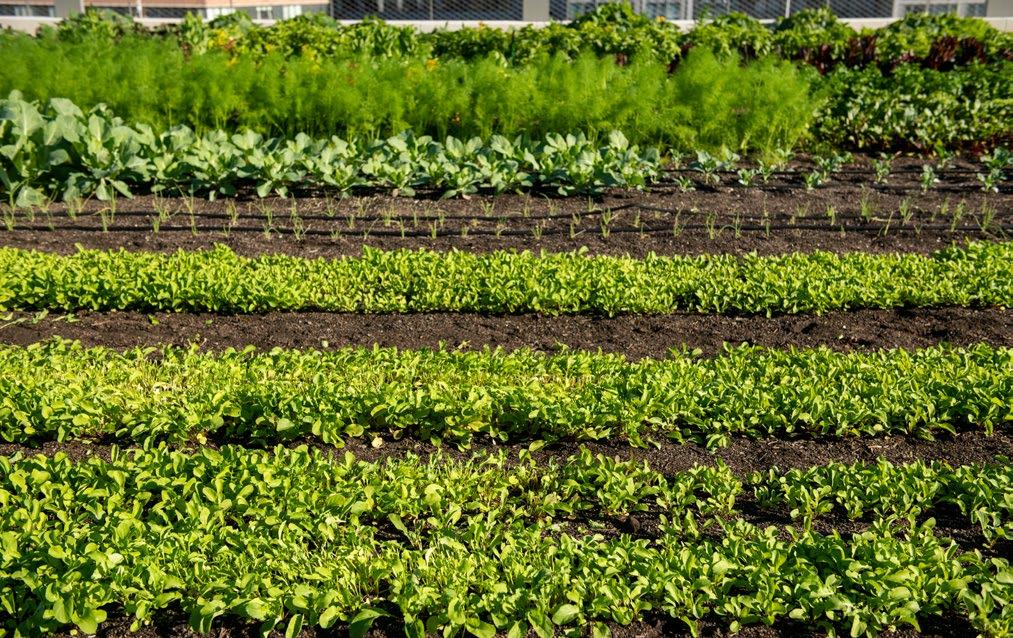

• FARMSHELF à Two hydroponic Farmshelf units are located in the Level 1 Food Court. These units grow herbs, edible flowers and leafy greens that are incorporated into catered meals. Event organizers can consider the following while working with CULTIVATED:


1. Prioritize sustainability when selecting service ware. à Choose china and reusable service ware whenever possible. This is the most sustainable option. à When disposables are required, CULTIVATED’s options have been selected with biodegradable materials and recyclability in mind. Consult with your sales representative to learn more. à Water coolers are available to reduce single-use plastics and to encourage use of personal reusable water bottles. Ask your sale representative about other unique hydration station options. 2. Customize your environmentally conscious menu with options for local and organic products and vegetarian and vegan menu options. 3. Front-of-house composting for guests is available upon request to reduce food waste in the landfill. 4. Sustainable decorations and signage options are available to amplify food and beverage messaging.
